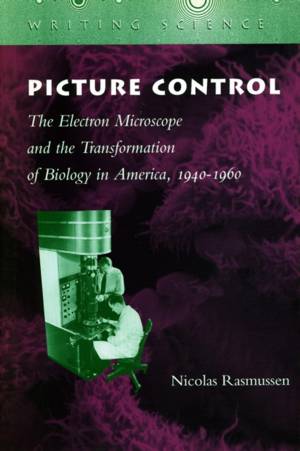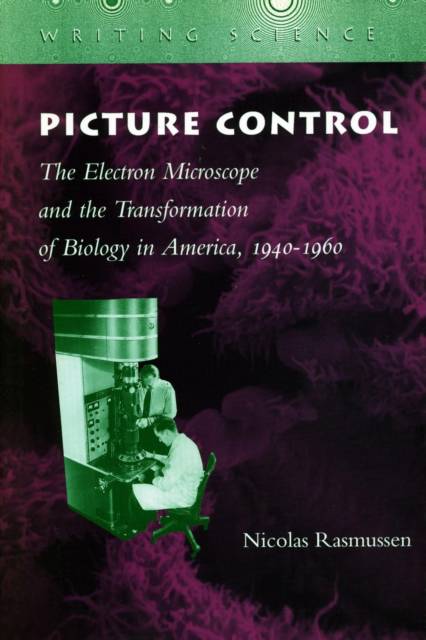
- Retrait gratuit dans votre magasin Club
- 7.000.000 titres dans notre catalogue
- Payer en toute sécurité
- Toujours un magasin près de chez vous
- Retrait gratuit dans votre magasin Club
- 7.000.0000 titres dans notre catalogue
- Payer en toute sécurité
- Toujours un magasin près de chez vous
Picture Control
The Electron Microscope and the Transformation of Biology in America, 1940-1960
Nicolas RasmussenDescription
Two major questions motivate this study: How do new devices get taken up as experimental systems by scientists? How does the adoption of new instruments affect scientific knowledge? Many ramifications emerge from these two simple questions. Among these are historical questions about how, by whom, and why new instruments are introduced, or about how another, different set of instruments might be adopted given alternative social and cultural circumstances. Philosophical questions include the ways in which scientific understanding of the world depends on scientists' instruments and techniques. Sociological questions concern such issues as how the organization of work within disciplines and laboratories and other scientific institutions may depend on the equipment employed.
All these questions are addressed in this book, which draws upon a range of archival sources as well as published scientific literature, through a detailed historical treatment of the electron microscope's introduction and early impact on the life sciences. The author first describes the introduction of the electron microscope during the World War II years, and then traces its influence on the subsequent divergence of several life sciences research traditions, including what came to constitute cell biology. The historical evidence is discussed in the light of recent discussions on the origin and nature of molecular biology, the importance of new instruments in the postwar life sciences, and the nature of research traditions, among other issues.
Building on the pragmatist tradition, the author also advances an original philosophical argument on the relation of experimental technology to scientific change, arguing that matters of scientific fact (and also matters of the social organization of science) are only settled through agreement on standardized "methods of inquiry."
Spécifications
Parties prenantes
- Auteur(s) :
- Editeur:
Contenu
- Nombre de pages :
- 436
- Langue:
- Anglais
- Collection :
Caractéristiques
- EAN:
- 9780804738507
- Date de parution :
- 01-08-99
- Format:
- Livre broché
- Format numérique:
- Trade paperback (VS)
- Dimensions :
- 151 mm x 226 mm
- Poids :
- 580 g

Les avis
Nous publions uniquement les avis qui respectent les conditions requises. Consultez nos conditions pour les avis.






